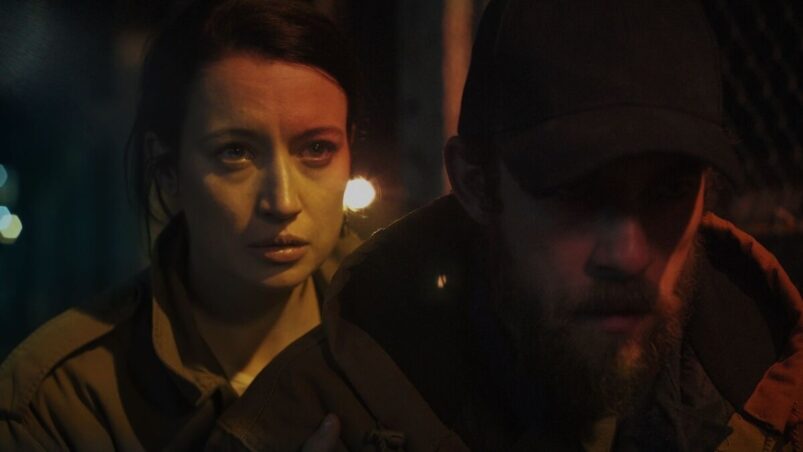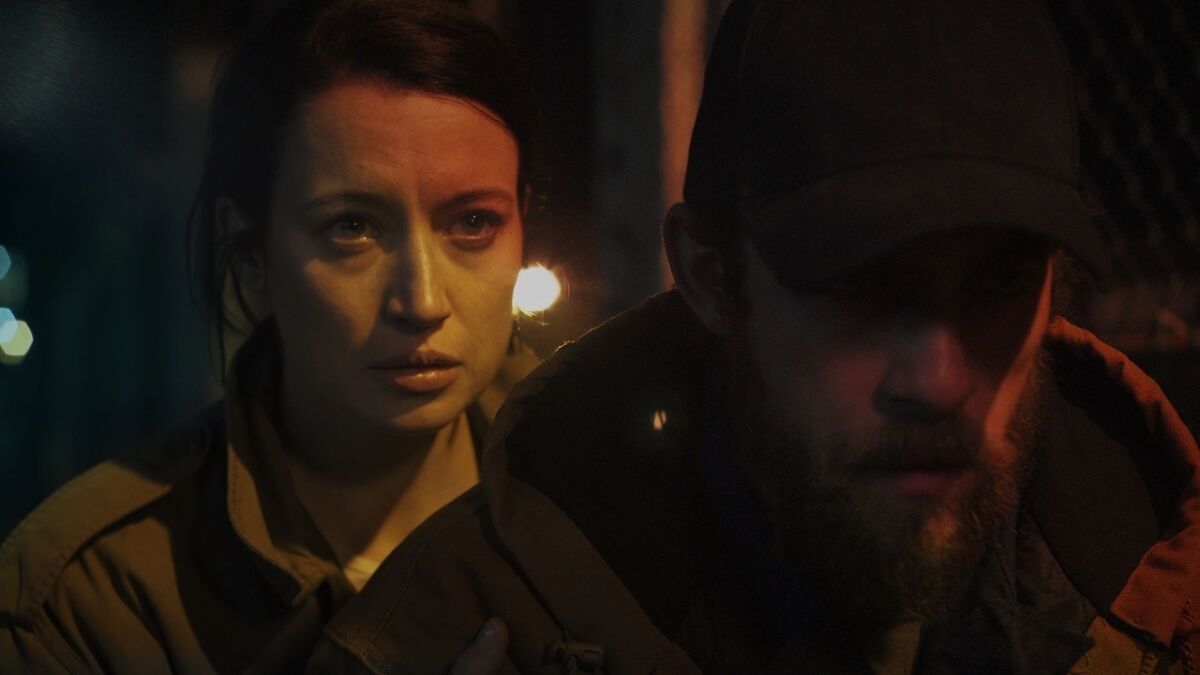
Siblings Wilson (Evan Dumouchel) and Daphne Shaw (Libby Ewing) are extremely close, and it makes sense. Growing up, their home wasn’t the most stable place, and they only had each other to turn to. Daphne is the more assertive one, while Wilson is sweeter and has a real timid vibe about him. Despite their past traumas, the siblings are charging forward; they have plans. Daphne wants to adopt a child, and Wilson wants to teach. We see in both their desires an attempt to redo their horrible childhoods – Daphne wants to love her child in a way that she was never loved, and Wilson wants to be around children and live vicariously through them.
As much as they don’t want their pasts to determine who they are, Daphne and Wilson can’t seem to overrun their own. There is something that awaits them in the darkness, an unblinking pair of yellow eyes belonging to a creature just biding its time before it grabs and flings them into the abyss. However, When I Consume You’s biggest detracting point is how on the nose it is with the development of this metaphor, where Daphne and Wilson’s personal demons become a tangible force in the film. There is also nothing particularly scary about its manifestation, just a guy in a hoodie that’ll punch you silly.
The soundscape is pretty much paint by numbers as well, with demonic whispering escalating in the background anytime something demon-related pops up on screen. The demon speaks to us using ASMR, and it just feels more weird than horrifying. The visuals are sometimes just really dark, and I know it’s supposed to reflect the bleak reality and all that, but half the time I was straining my eyes to figure out what’s happening on screen – there has to be a better way. As this is an indie film, I know that some of the stylistic choices are probably the result of budget constraints, but the viewer shouldn’t be made to feel this so acutely in so many moments of the film.
The first act is Daphne fighting the demon and losing, and the second is about her preparing Wilson to fight it himself. We aren’t privy to much of her battle, beyond a basic shove to the wall and tooth-yanking moment. It does set things up decently, since we find ourselves intrigued about who the attacker could be and what it all means. However, the second act undermines all this work with her re-emerging in ghost form, and explaining everything to her brother, before we launch into the slowest progression of events ever. This so-called training montage also doesn’t jive well with the tone of the film, and it is oh-so tedious to watch the pair of them prepare to face the attacker.
There are quite a few parallel instances drawn between the two, like the aforementioned tooth-pulling stuff and each of them taking turns to lie down in the middle of the street, which will make more sense when you watch the film. It’s a cool way to establish the bond between the two, as well as highlight how Wilson’s journey will mirror his sister’s.
I did enjoy the tender moments between the siblings, be it a game of cards or just their conversations together. As someone with two brothers I still speak to everyday despite being over thirty, I like that a brother-sister relationship is the film’s centre. There is this really sweet moment where Daphne is trying to prove that she’s really her to Wilson, and he immediately catches on that it’s his sister. The close-up shots of their faces during their talks is a nice touch, though I do think most of these extreme close-ups is just director Perry Blackshear trying to capture the sheer beauty of Dumouchel’s eyelashes.
The last act is pretty bonkers, and MacLeod Andrews seems to be having fun with whatever it is he’s doing. It does all feel a little too late, though.
Review screener provided.
READ NEXT: 76 Best Modern Horror Movies of the 21st Century
Some of the coverage you find on Cultured Vultures contains affiliate links, which provide us with small commissions based on purchases made from visiting our site.


